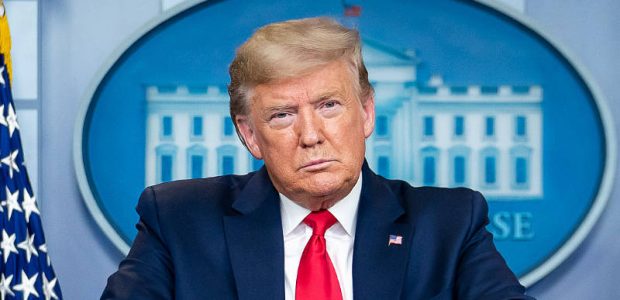


The Supreme Court heard arguments in the Trump Colorado ballot case this morning and it’s not looking good for the decision to boot Trump off the ballot.
Even liberal justice Elena Kagan asked “why a single state should decide who gets to be president of the United States” and said that decision “sounds awfully national to me.”
Here’s more via Reuters:
U.S. Supreme Court justices on Thursday appeared skeptical toward a judicial decision kicking former President Donald Trump off the ballot in Colorado for participating in an insurrection during the 2021 Capitol attack in a case with major implications for the November election.
The nine justices were hearing Trump’s appeal of a Dec. 19 ruling by Colorado’s top court to disqualify him from the state’s Republican primary ballot under the U.S. Constitution’s 14th Amendment after finding that he participated in an insurrection. The case has major implications for the Nov. 5 U.S. election, with Trump the overwhelming frontrunner for the Republican nomination to challenge Democratic President Joe Biden.
Section 3 of the 14th Amendment bars from holding public office any “officer of the United States” who took an oath “to support the Constitution of the United States” and then “engaged in insurrection or rebellion against the same, or given aid or comfort to the enemies thereof.”
The justices grilled Jason Murray, representing four Republican voters and two unaffiliated voters who sued to keep Trump off the Colorado ballot.
Conservative Chief Justice John Roberts said that if the Colorado decision is upheld, other states will proceed with disqualification proceedings of their own for either Democratic or Republican candidates.
“And it will come down to just a handful of states that are going to decide the presidential election. That’s a pretty daunting consequence,” Roberts said.
“The consequences of what the Colorado Supreme Court did, some people claim, would be quite severe,” conservative Justice Samuel Alito said. “The decision of the Colorado Supreme Court could effectively decide this question for many other states, perhaps all other states.”
“I think that the question that you have to confront is why a single state should decide who gets to be president of the United States,” liberal Justice Elena Kagan asked Murray. “This question of whether a former president is disqualified for insurrection, to be president again … it sounds awfully national to me.”
Roberts also told Murray that the whole point of the 14th Amendment was to restrict state power while also augmenting federal power.
“Wouldn’t that be the last place that you would look for authorization for the states … to enforce the presidential election process. That seems to be a position that is at war with the whole thrust of the 14th Amendment and very ahistorical,” Roberts told Murray.
“No, you honor,” Murray said, saying that state authority over elections is enshrined elsewhere in the Constitution.
The justices questioned Trump’s lawyer Jonathan Mitchell over his arguments that Section 3 cannot be enforced by states absent congressional legislation and that presidents are not subject to Section 3.
Roberts asked Mitchell whether a state’s top elections official could disqualify a candidate who comes forward and says he took the oath mentioned in the provision and engaged in an insurrection.
“No, the secretary of state could not do that,” Mitchell said.
“So if the state banned even an admitted insurrectionist from the ballot, it would be adding to and altering the Constitution’s qualifications for office,” Mitchell added.
“If the candidate is an admitted insurrectionist, Section 3 still allows the candidate to run for office and even win election to office – and then see whether Congress lifts that disability after the election,” Mitchell said.
The House of Representatives or Senate, if the candidate is running for Congress, would then have to decide on its own “whether to seat that elected insurrectionist because each house is the sole judge of the qualifications of its members.”
